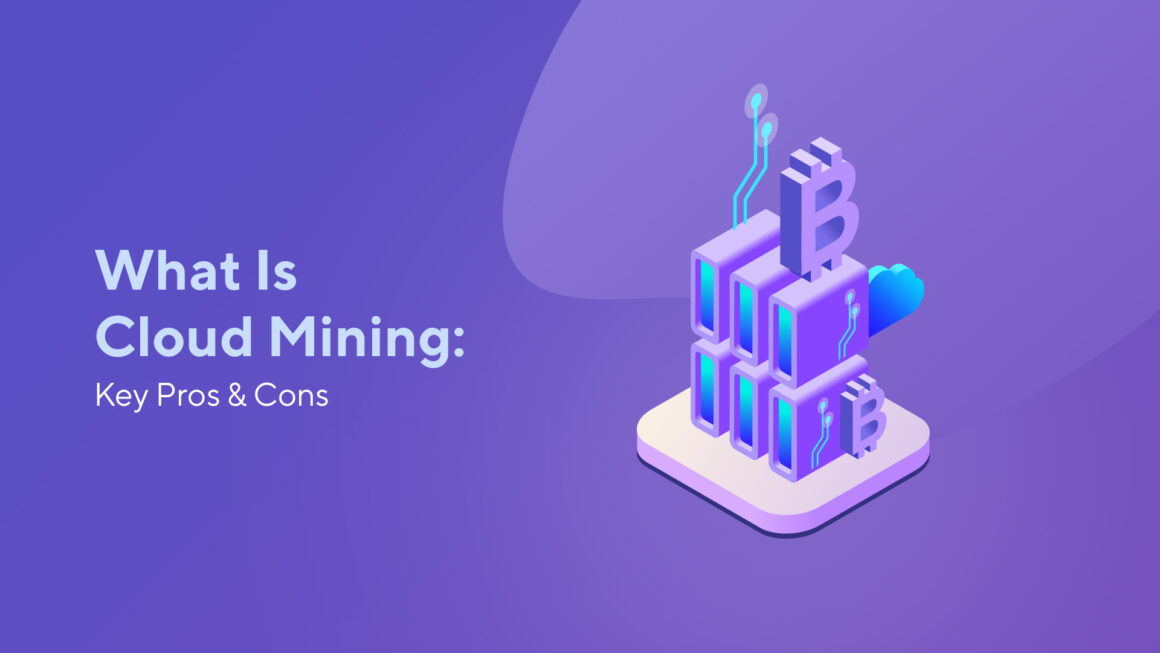Crypto mining refers to verification of transactions on a blockchain. Miners around the world continuously ensure data integrity of a blockchain by confirming blocks through mathematical processes. Depending on how much computing power a miner provides to verify new blocks, he/she receives a share of a mining commission.
How was mentioned before, a lot of computing power and thus high-performance and expensive hardware is necessary. High energy costs for a lengthy process of finding new blocks is also the main reason why mining isn’t very popular with private individuals. However, providers of so-called cloud mining pools dealt with this problem. What is cloud mining? Today, we’ll try to find out!
What Should You Know About Cloud Mining?
In this context, cloud mining can be considered as a type of service. Providers make resources available in their data centers that basically anyone can use to mine a cryptocurrency. Similar to Bitmain, providers have machines that are specially designed for mining and work extremely efficiently.
Cloud mining providers usually tie their offer to different models, the price of which is based on the computing power offered. As a user, you pay for access to efficient mining hardware and the associated services. As a result, you won’t deal with energy costs, as from now on it’s the business of a provider. With cloud mining, everyone can basically benefit from cryptocurrency mining without having to buy expensive hardware.
Pros & Cons of Cloud Mining
Cloud mining must always be considered individually for each user. While conditions and services of a provider can be worthwhile for one person, the same offer can be rather uninteresting for other interested parties. It’s therefore advisable to have knowledge of basic advantages and disadvantages of cloud mining in advance.
Advantages of Cloud Mining
The most obvious advantage is clearly the fact that you don’t have to purchase any hardware. In particular, you can save a lot of money on expensive mining hardware and the associated energy costs. Likewise, no research in the area of hardware selection is necessary, because an infrastructure of mining providers is already optimally designed for crypto mining.
At the same time, there is no loud noise in your own apartment coming from mining rigs. This problem can be eliminated from the outset with cloud mining. Furthermore, united computing power of mining pools allows finding new blocks much faster. Thus, jointly mined coins are then distributed according to the computing power used.
Disadvantages of Cloud Mining
The main disadvantage of cloud mining is an inflexible contractual relationship with a provider. As a rule, a fixed-term contract, that allows mining a certain cryptocurrency over the term, is concluded. Thus, the control of a mining process isn’t in your own hands and short-term adjustments aren’t possible. Switching to another cryptocurrency is therefore impossible during the contract period. In particular, experienced miners who mine digital currencies on their own would not be happy with the static approach of cloud miners.
What do you guys think about cloud mining? Feel free to share your opinion in the comments!

Leave a Reply